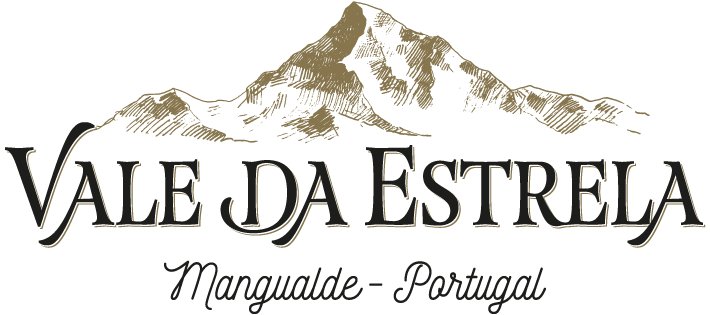RUI COSTA FROM COAPE – “IT IS NECESSARY TO VALUE SHEPHERDING AND MILK PRODUCTION. IF NOTHING IS DONE, IT IS AN ACTIVITY CONDEMNED TO EXTINCTION”.

Rui Costa, Chairman of COAPE
Rui Costa, president of COAPE, Cooperativa Agropecuária dos Agricultores de Mangualde, gave an interview to Vale da Estrela in which he expressed concern for the safeguarding of pastoral activity and the entire dairy sector and the need to guarantee the authenticity of Serra da Estrela PDO cheese.
COAPE, Cooperativa Agropecuária dos Agricultores de Mangualde, under a protocol established in 2016, is currently completing its fourth year of milk production in collaboration with Vale da Estrela Dairy. What is the balance that can be made at this stage?
I make a positive assessment. In four years, we managed to build a solid project capable of responding to the interests of all parties. Together, COAPE and Vale da Estrela, we were able to appreciate the effort and dedication of many families that year after year struggled with the insecurity of the sector.
We invest in the organization of the activity, by improving the quality of milk through the placement of refrigerated storage tanks in all producers, implementing the daily collection of milk from producers, promoting through our partners free training to producers and most importantly, stabilizing the price of milk during the whole lambing season plus a 20% increase in liters.
t has been an effort and a huge bet in the sector. We recently integrated a project that aims to promote PDOs in the Central region of Portugal, where Serra da Estrela PDO Cheese takes on a role that it deserves due to its size and history.
Within this context and in the logic of being able to obtain gains, we got three electric vehicles properly equipped for milk collection. We also created a Land Exchange in partnership with our Municipality, which makes land available for exploration to new investors.
Aware that much remains to be done, COAPE will continue to work with milk producers, cheese dairies, institutions linked to the sector and others, always respecting the principles of corporativism.
Given the current circumstances, do you believe that this is still a sector that lacks support? What should be done to help the shepherds of Serra da Estrela?
Knowing the sector, we all know that if nothing is done, this activity is doomed to extinction.
There are many weaknesses in the sector that deserve our attention in order to guarantee the continuity and existence of such a noble activity.
The role of shepherds in the territories goes much further than the mere production of milk, which in my opinion should deserve special attention from the central and local authorities. Ensuring the authenticity of Serra da Estrela PDO Cheese requires us to make a joint effort and an articulation between all those involved in order to create positive synergies and common objectives that promote the valorization of the entire activity. There are already good examples of support programs for this sector that we must replicate and harmonize in all the municipalities of the PDO region.
How do you see the future of the Serra da Estrela PDO cheese sector and what should be the initiatives to promote this unique product in the world?
We all know what to do to value PDOs. There are entities in the region that have the capable know-how to quickly find the right path to success in the sector. Protect indigenous breeds from other exotic breeds, support sheepherding through municipal regulations supporting primary activities, positively discriminate young farmer projects, make land grants available for livestock farms, protect PDO from uncertified cheese to the point that PDO production represents more than 80% of cheese production in the region, these are some, among other initiatives, that certainly contribute to the future of the sector.
We are always available to embrace projects and participate as partners in the promotion and enhancement of our PDO.
How many Serra da Estrela shepherds are included in the protocol with Vale da Estrela Dairy and the amount of milk transported per year?
We currently have about 37 sheep milk producers and 10 goat milk producers.
The amount of sheep’s milk delivered by lambing season Vale da Estrela Dairy depends a lot on several factors, with an average close to 210,000 L/year.
What is the dimension of COAPE, its main activities and what does it promote on a day-to-day basis?
Today COAPE has the status of PME (Smal and Medium Company) Líder with a turnover of more than 3.5 million euros/year.
COAPE – Cooperativa Agropecuária dos Agricultores de Mangualde – is a multisectoral cooperative institution of reference in the region, which responds to the desires and needs of its cooperators in all its scope, presenting them with new proposals, some of them bold and innovative, of approach to the agricultural and livestock sector.
We currently have 5 areas:
MBERRY’S is a section of COAPE specialized in the production and marketing of berries. The main strategy is the association of several small producers, organized in integration contracts with COAPE.
CIDECA, Center for Agricultural Research, Development and Certification, is a research, development, certification and professional training center in Mangualde that presents feasible proposals in the areas of learning and training, and also in the research and development of new products, having the ability to certify them.
CENTRO COMERCIAL, we manage a set of shops and commercial spaces that provide within the cooperative’s facilities a set of services, dentist, gym, beautician, lawyers, offices, pastry shop, etc
OPLEITE is a section specialized in the production, collection and marketing of sheep’s and goat’s milk. We make all production factors available to our cooperators.
STORE COAPE, is a section for buying and selling agricultural and food products. We seek to be competitive and market price regulators.
How do you analyze the current concept of Corporativism in Portugal?
As its manifestation in the Portuguese economy and society is significantly below what would be desirable, it must, however, be recognized as having an important role in the deepening of social cohesion in our country. Examples of this are agricultural, fishing, housing, educational, cultural or consumer cooperatives. Faced with the challenges we face today, it is evident that cooperativism must be seen as an authentic choice in the face of other modes of production rather than as an urgent need for survival. Any form of union must be associated with “those who do not want help, but collaborate, contribute, conquer under the sign of self-determination” (DEMO, 1988)
